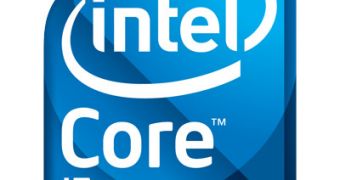Late last month, we stumbled upon a review of Intel's upcoming Core i7 processor, which we duly presented to you. The review was done as a comparative benchmark between Intel's upcoming desktop processor and one the company's current quad-core QX9770, which the Core i7 succeeded to outperform in most of the tests, proving that Intel's next-generation processor architecture will certainly improve desktop computing as we know it.
Following that article, it appears that the Santa Clara, California-based chip maker has finally decided to disclose more details on its upcoming processors. Not to us, mortals, of course, but rather to its partners, which have apparently received a document from Intel claiming that its upcoming processors have been built to deliver a performance increase of up 50%. The document in question indicates the differences between the company's Core 2 Quad QX9770 and the yet-to-be-released Core i7 Extreme 965.
According to the document, the QX9770 delivers 52% more 3D gaming performance, 38% more rendering performance, and 41% more movie editing and conversion performance. In order to achieve these numbers, the Core i7 platform was built of an X58-based motherboard, 3GB of DDR3 and a discrete graphics card. Unfortunately, there are no details on the Core 2 Quad platform, but the numbers do appear to confirm the benchmark results we told you about last month.
It would be nice to see a comparative review of the Core i7 and the upcoming Deneb from AMD, if only to get a general view of how the consumer CPU market would look in the upcoming months. Also, it would be quite interesting if AMD succeeded in delivering a processor faster than anticipated, thus giving Intel, which has been the leading chip maker for some time now, a run for its money, much like it has done with NVIDIA, after releasing the Radeon 4000-series of GPUs.

 14 DAY TRIAL //
14 DAY TRIAL //